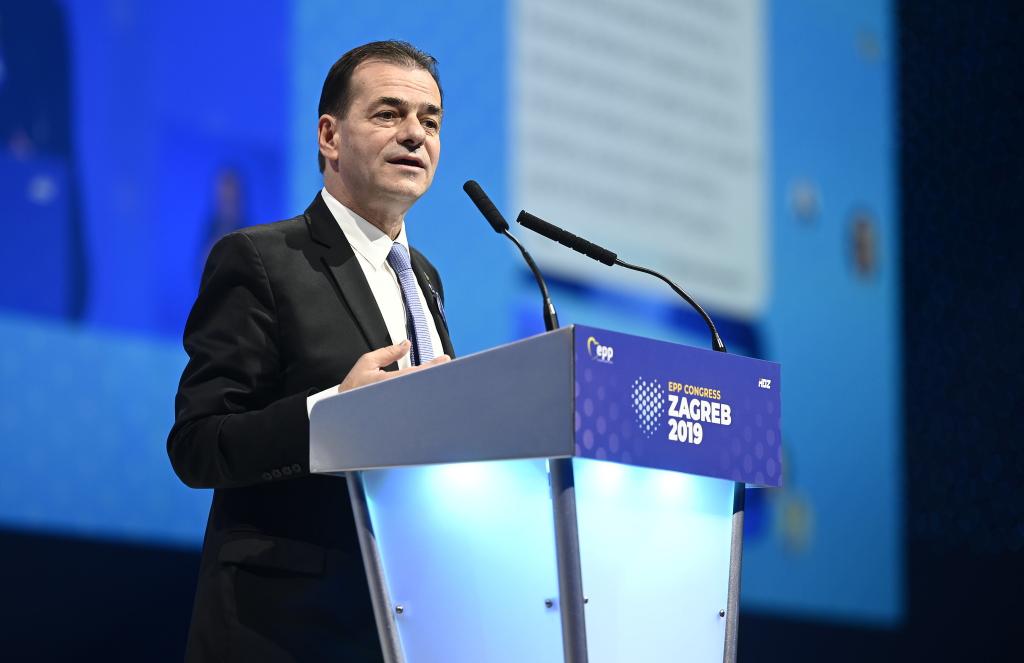Thessaloniki gets ready for its metro launch in November
The underground rapid transit lines have been under construction for almost two decades due to various project delays
 TheMayor.EU logo
TheMayor.EU logo 
ludovic orban, Source: EPP Zagreb Congress in Croatia, 20-21 November 2019 by European People's Party (CC BY 2.0)
A proposed change to the way mayors are elected led to the downfall of the Romanian government
The central government of Romania attempted to push ahead with its proposals to reform electoral law when it comes to the way mayors are elected across the country. As of right now, mayors are elected through a system reminiscent of First Past the Post – the candidate with the most votes wins, no matter how much of a lead he has over his opponents or how many votes he has acquired in total.
That has led to many mayors in Romania being elected by less than 30% of the vote. “If we consider the low turnout, there are cases when a mayor had been elected by 10% of the number of inhabitants. Over 600 mayors elected in 2016 had been voted by less than 50% of the citizens,” stated Romanian Prime Minister Ludovic Orban, as quoted by Romania Journal.
To remedy the situation, the government introduced a draft proposal that would turn mayoral elections into a two-round affair. That means that the top two candidates will face off against each other in a 2nd round of voting and the one who manages to secure over 50% of the votes is declared the winner.
According to the government that should help address some issues concerning the legitimacy of local representatives and should also improve the quality of services offered by their administrations. By ensuring citizens’ democratic control over the electoral process, the government hopes that the changes will make local authorities more responsive and receptive to the concerns of their constituents.
There was immediate discontent within the Romanian parliament, however. The Social Democratic Party of Romania, which up until very recently was in government, threatened the ruling centre-right coalition with a vote of no confidence if it pushes ahead with the reform – and it delivered.
Earlier today the government of Ludovic Orban was brought down by said vote of no-confidence spearheaded by the SPD in response to the mayoral election reform. With the future of the country now in doubt, it looks almost impossible for any meaningful changes to be approved before the upcoming local and probably snap general elections later this year.

The underground rapid transit lines have been under construction for almost two decades due to various project delays

Now you can get your wine in Talence by paying directly in Bitcoin

That’s because the state has to spend money on updating the railway infrastructure rather than subsidizing the cost of the popular pass

Rethinking renewable energy sources for the urban landscape

The examples, compiled by Beyond Fossil Fuels, can inform and inspire communities and entrepreneurs that still feel trepidation at the prospect of energy transition

Now you can get your wine in Talence by paying directly in Bitcoin

The 10th European Conference on Sustainable Cities and Towns (ESCT) sets the stage for stronger cooperation between the EU, national and local level to fast track Europe's transition to climate neutrality.

At least, that’s the promise made by the mayor of Paris, Anne Hidalgo

The underground rapid transit lines have been under construction for almost two decades due to various project delays

At least, that’s the promise made by the mayor of Paris, Anne Hidalgo

Hostal de Pinós is located in the geographical centre of the autonomous region

Despite its church-y name, the district has long been known as the hangout spot for the artsy crowds

Urban dwellers across the EU are having a say in making their surroundings friendlier to people and the environment.

Forests in the EU can help green the European construction industry and bolster a continent-wide push for architectural improvements.

Apply by 10 November and do your part for the transformation of European public spaces

An interview with the Mayor of a Polish city that seeks to reinvent itself

An interview with the newly elected ICLEI President and Mayor of Malmö

A conversation with the Mayor of Lisbon about the spirit and dimensions of innovation present in the Portuguese capital














